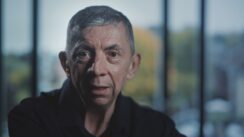Broadcaster
Channel 4
First broadcast
13 Jul 2025
Presenter
Royce Pierreson
The latest episode of 24 Hours in Police Custody: Lost Boys, broadcast on Channel 4, was not easy viewing. But for anyone involved in education, and especially for those training the next generation of secondary-school teachers, it should be mandatory.
Over the course of an hour, the programme peeled back the curtain on the brutal realities of county-lines drug exploitation, following Bedfordshire Police officers as they tried to locate and rescue boys groomed and coerced into working for organised gangs. It was raw, deeply uncomfortable and utterly essential.
The episode begins with a mother’s frantic call to police; her teenage son has gone missing. Within hours, officers uncover a chilling truth: fifteen-year-old “Gavin” (a pseudonym) has been targeted and manipulated through threats to his family — told he owed a debt he had never incurred and coerced into transporting drugs to unfamiliar towns.
Viewers see police raids on so-called “trap houses” where teenagers are holed up in squalid conditions, stripped of phones, freedom and safety. The fear is palpable. Some of the boys are traumatised into silence; others, desperate to escape, take risks so extreme they are lucky to survive.
By the end of the programme, we learn that this is more than drug crime; it is modern slavery. The case results in rare convictions not only for drug trafficking but for the trafficking and exploitation of children.
This matters to the profession because teachers are often the first adults outside the family to notice when something is wrong.
This is more than drug crime; it is modern slavery
In many of these cases, the warning signs were visible long before the police became involved: sudden changes in behaviour, unexplained absences, withdrawal from friends or the sudden appearance of expensive trainers or electronics.
The programme reinforces that recognising these signs requires more than a safeguarding checklist. It demands a deep, trauma-informed understanding of the psychological manipulation at play — how gangs use coercive control, fear and fabricated debt to keep young people trapped.
This is precisely why teacher educators have such a critical role to play. It is not enough for future teachers to be able to recite the statutory guidance from memory. They must leave their training equipped to navigate the messy, complex reality that safeguarding can present.
And this is where Lost Boys could be transformative in teacher education. Its real-world urgency bridges the gap between theoretical safeguarding frameworks and the lived experiences of children at risk.
Teacher educators can, and should, embed the programme — or carefully selected extracts — into their ITE curriculum. Watching and then dissecting the narrative in discussion groups would bring trainee teachers face-to-face with the human cost of exploitation.
Equipping new teachers to deal with issues like those depicted in Lost Boys means going beyond the statutory requirements. It involves:
Building knowledge of county-lines operations
How recruitment often happens through social media, how gangs use peer recruiters and how pupils can be moved hundreds of miles from home without raising suspicion.
Exploring ethical complexities
Challenging victim-blaming narratives, understanding that some pupils may not see themselves as victims and considering how to respond without alienating them.
Connecting training to local context
Examining regional data, police intelligence and community safeguarding campaigns so that future teachers are aware of the specific risks in the areas where they will work.
Forging partnerships
Bringing in local police, youth workers and safeguarding charities to share insight and advice directly with trainee teachers.
When teacher educators make these elements part of their programme, they prepare new teachers to step confidently into their safeguarding role from day one.
Lost Boys is not just a powerful piece of television; it is a professional learning opportunity we cannot afford to ignore. It humanises the statistics, putting real faces to the headlines about county-lines and child criminal exploitation.
For schools, it is a reminder that safeguarding is everyone’s responsibility, not just the job of the designated lead. For teacher educators, it is a call to ensure that the next generation of teachers enters the profession not only with an understanding of subject pedagogy but with the awareness, instincts and confidence to protect some of the most vulnerable young people in our communities.
If we want teachers who can do more than spot the signs — intervene, support and safeguard effectively — then we must give them the tools, understanding and emotional preparedness to do so. Watching Lost Boys is one small but significant step towards that goal.
In the end, what the programme makes painfully clear is this: when children disappear from our classrooms, the question is never simply ‘where have they gone?’ It is ‘who has taken them, and what must we do to get them back?’












Your thoughts